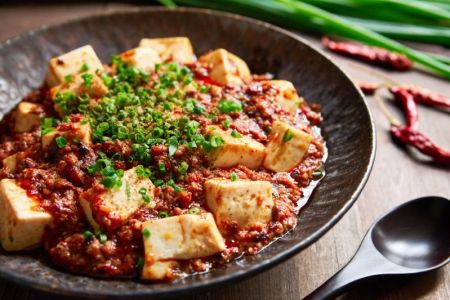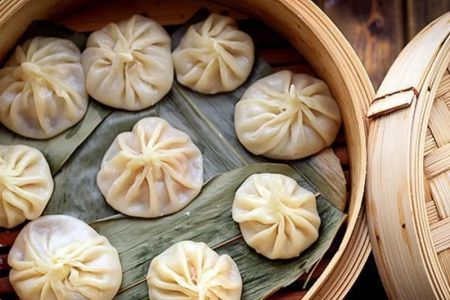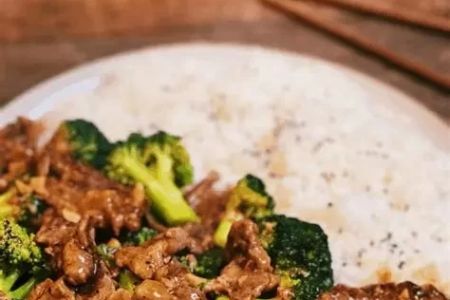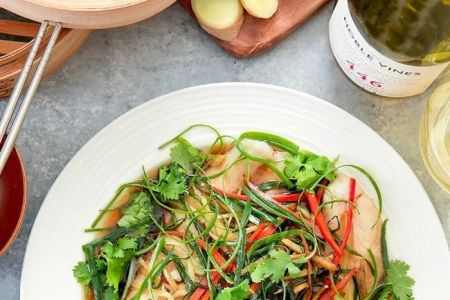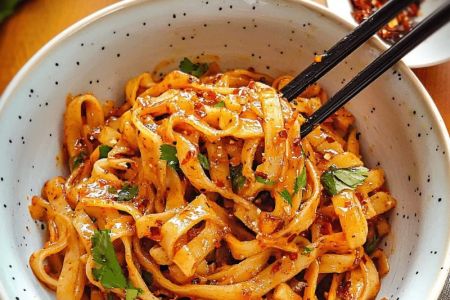Chinese cuisine is rich in flavors, textures, and traditions that go back thousands of years. As a passionate foodie from the United States, I've always been intrigued by how Chinese food incorporates seasonal ingredients into its recipes. Unlike some cuisines where ingredients are sourced from a fixed set of staple foods year-round, Chinese cooking celebrates the changing seasons by adapting its ingredients to what is freshest and most abundant at any given time. This relationship between Chinese food and seasonal ingredients not only enhances the flavor of each dish but also aligns with ancient principles of balance and harmony in Chinese culture.
The Role of Seasonal Ingredients in Chinese Food
In China, food is not just about taste; it’s about achieving a balance of flavors and nutrients that correspond to the time of year. Seasonal ingredients play an essential role in this delicate balance, ensuring that each dish is not only flavorful but also beneficial for the body’s needs at different times of the year. The Chinese believe that food can be medicinal and that what we eat should complement the natural rhythms of the environment.
For example, in the spring, when the weather is getting warmer, Chinese cuisine uses more fresh greens like pea shoots, bamboo shoots, and sprouts. These light and refreshing vegetables help the body detox and refresh after the long winter months. In contrast, during the colder months of winter, hearty root vegetables like sweet potatoes, pumpkins, and radishes make their way into Chinese stews and soups, providing warmth and nourishment.
Spring: A Season of Freshness and Rebirth
Spring in China is a time of renewal, and it is reflected in the types of ingredients used in Chinese cooking. During this season, the focus is on fresh greens, delicate herbs, and vibrant vegetables that signify new life. A popular ingredient in spring Chinese dishes is the tender pea shoot, which has a sweet, crisp flavor and is commonly stir-fried or added to soups. Another seasonal favorite is the bamboo shoot, which has a subtle, earthy taste that perfectly complements the flavors of stir-fries, dumplings, and even spring rolls.
Chinese cuisine also incorporates many wild herbs and flowers in the spring, such as chrysanthemum petals and wild ginger. These ingredients are not only packed with nutrients but are also believed to help detoxify the body and improve digestion, making them perfect for the warmer months when we naturally crave lighter, fresher foods.
Summer: Bright and Cooling Flavors
As the heat of summer sets in, Chinese cuisine turns to ingredients that are cooling and hydrating. Summer is the season of abundance in China, and you’ll find a variety of fruits, vegetables, and herbs that are perfect for beating the heat. Cucumber, watermelon, and tomatoes are commonly used in Chinese summer dishes to refresh the body and provide much-needed hydration.
One dish that comes to mind is the famous Chinese cold noodle salad. It’s a simple yet flavorful dish that’s perfect for hot weather. The noodles are tossed with cucumber, sesame oil, soy sauce, and garlic, creating a cool and refreshing meal. Chinese summer soups also make use of cooling ingredients like bitter melon and lotus root, which help reduce internal heat and promote healthy digestion.
In the summer, the use of aromatic herbs like cilantro and mint is also widespread. These herbs provide not only flavor but also a cooling effect on the body, which is why they are frequently found in summer dishes. As a lover of Chinese food, I’ve found that these herbs add an amazing freshness to dishes like dumplings, spring rolls, and even hot pots!
Autumn: A Time for Harvest and Comfort
As the weather begins to cool down in the fall, Chinese cuisine shifts to more comforting, hearty dishes that incorporate ingredients harvested during the autumn months. This is the season for pumpkins, squashes, and root vegetables like sweet potatoes and yams. These ingredients are used in soups, stews, and braised dishes, offering warmth and nourishment to the body as it adjusts to the cooler temperatures.
One of my favorite autumn Chinese dishes is braised pork belly with winter melon. The winter melon, which is harvested in the fall, has a mild, sweet flavor that pairs perfectly with the rich, fatty pork. The dish is slow-cooked in a savory broth, making it incredibly comforting and perfect for fall.
Winter: Warming and Energizing Ingredients
Winter in China is a time for slow-cooked dishes and ingredients that provide warmth and energy to keep the body strong throughout the cold months. Root vegetables like carrots, radishes, and turnips are commonly used in winter soups, stews, and hot pots. These vegetables are rich in nutrients and provide a hearty base for warming dishes.
Chinese hot pot is a popular winter dish that is perfect for cold weather. The broth is simmered for hours with ingredients like Chinese cabbage, mushrooms, and tofu, creating a rich, flavorful meal that is shared among family and friends. Hot pot is the perfect example of how Chinese cuisine utilizes seasonal ingredients to bring people together and provide nourishment during the colder months.
In addition to vegetables, Chinese cuisine also incorporates ingredients like ginger, garlic, and cinnamon in the winter. These ingredients are believed to warm the body, improve circulation, and boost the immune system, making them essential for staying healthy during the cold winter months.
The Harmony Between Seasonal Ingredients and Chinese Medicine
One of the most fascinating aspects of Chinese cuisine is how it intertwines with traditional Chinese medicine. According to the principles of Chinese medicine, food is considered a form of medicine that can either heal or harm the body depending on the balance of the ingredients. Seasonal ingredients are carefully chosen to align with the body’s needs at different times of the year, helping to maintain harmony and balance.
For example, in the summer, the focus is on cooling foods to help regulate the body’s internal temperature, while in the winter, warming foods are favored to strengthen the body and keep it protected from the cold. This connection between food and medicine is one of the reasons why Chinese cuisine has stood the test of time, offering both delicious meals and health benefits.
Chinese Food: A Celebration of Nature's Bounty
Chinese cuisine is much more than just a collection of recipes. It’s a celebration of nature’s bounty, with each season offering a new opportunity to enjoy the freshest, most flavorful ingredients. By incorporating seasonal ingredients into their dishes, Chinese chefs not only enhance the flavors of the food but also provide nourishment that aligns with the body’s natural needs.
As someone who loves Chinese food, I can’t help but appreciate the thoughtfulness and care that goes into selecting ingredients for each season. It’s a beautiful reminder of how food can connect us to nature and to the rhythms of life. Next time you enjoy a Chinese meal, take a moment to appreciate the seasonal ingredients that have been carefully chosen to create a dish that’s not only delicious but also nourishing for the body and soul.
If you're craving authentic Chinese food, don't forget to check out our website for the best Chinese restaurants and services in your area. Whether you're in the mood for a hot pot feast or a refreshing summer noodle dish, you'll find the perfect place to satisfy your cravings.


